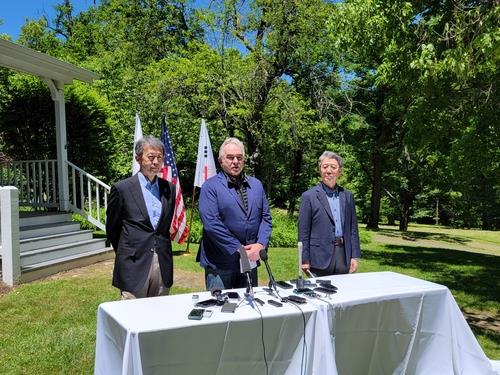Tokyo, 13 October, /AJMEDIA/
The second-ranking diplomat at the U.S. State Department, Kurt Campbell, will visit Japan and South Korea this week to advance bilateral and trilateral cooperation.
While speaking at an event involving Japanese and U.S. business leaders in Washington, Campbell, deputy secretary of state, unveiled his plan to meet with “key players” on the team of Japan’s new Prime Minister Shigeru Ishiba in Tokyo.
Campbell said he will then move on to Seoul, suggesting that the creation of a permanent secretariat of the United States, Japan and South Korea, aimed at further aligning their policies, would be one of the major topics to be discussed during a meeting with his counterparts from the two Asian countries.
“We believe that the most important step that we can take in the Indo-Pacific is to secure a stronger, stable, more visionary relationship among the three countries,” he said.
With less than a month before the U.S. presidential election, Campbell, a major architect of the administration of President Joe Biden’s approach to Asia, said he wants to underscore that the enhancement of the three-way cooperation will continue to be “a major undertaking.”
In late May, the second-ranking diplomats from the three countries agreed to establish a coordinating body to step up coordination on North Korea and other challenges to regional and global stability.
The plan is part of what U.S. officials say is an effort to “institutionalize” the three countries’ cooperation, no matter who becomes president or prime minister.
Officials of the three countries have said they are trying to organize a meeting of their leaders by the end of this year.
It could be held in November on the sidelines of a leaders’ meeting of the Asia-Pacific Economic Cooperation forum in Peru or a Group of 20 summit in Brazil. If all goes smoothly, the launch of the secretariat is likely to be announced at that time.
Since a trilateral summit at the U.S. presidential retreat of Camp David near Washington in August last year, the three countries have been expanding the scope of their cooperation, not just in Northeast Asia but globally, with China’s increasing political and economic influence in focus.

